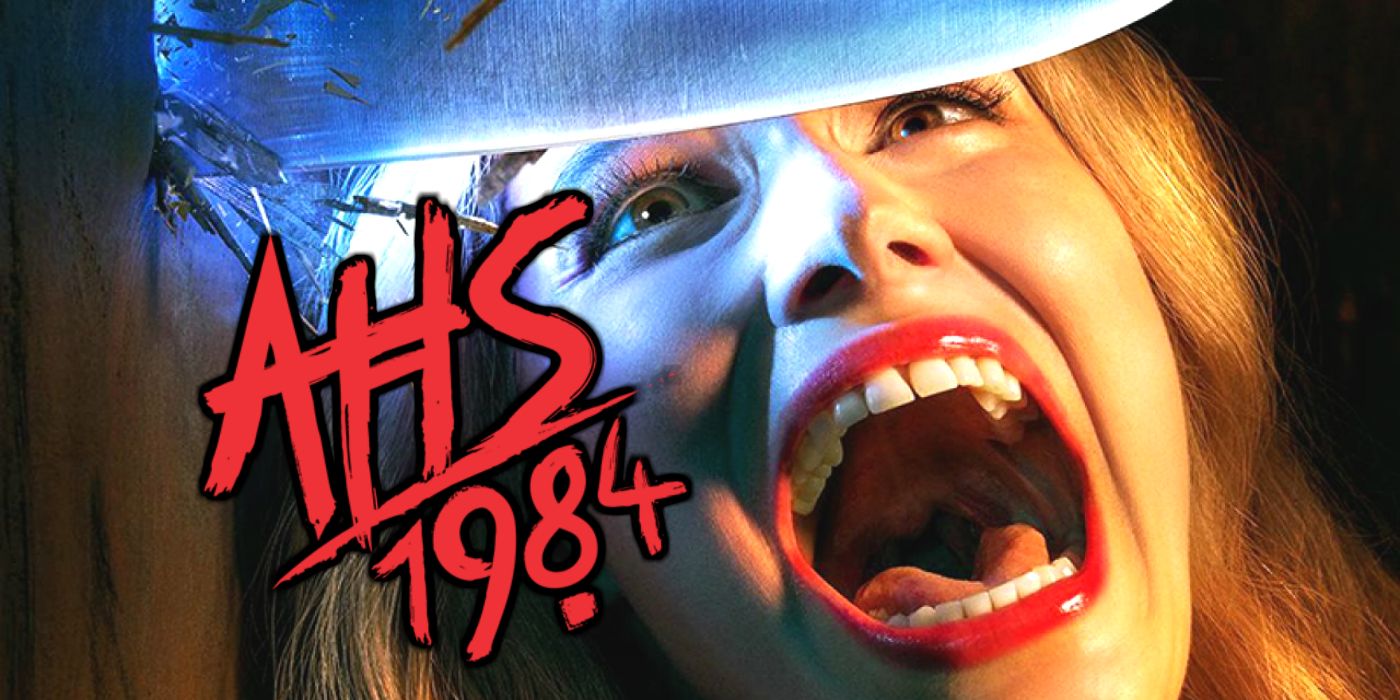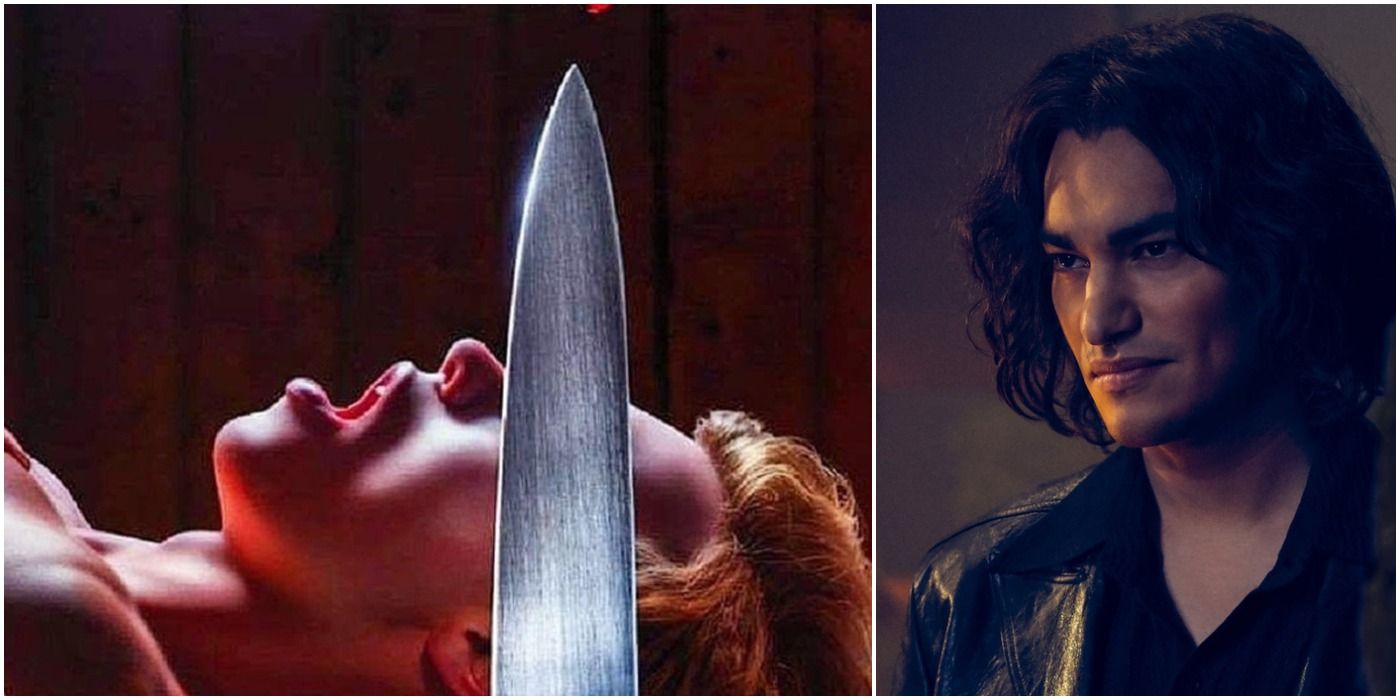
American Horror Story: 1984 wasn't universally liked or as successful as other seasons, but could have easily been improved with one small change. Series creator Ryan Murphy flexed his genre savvy by paying homage to horror's golden age—the ever-popular and enduring '80s, which revolved around the slasher sub-genre—but even that tribute couldn't override some of the season's glaring errors. One, in particular, could have easily been omitted for a greater, more interesting, and unique final result.
American Horror Story has dominated horror TV's popularity since season 1, Murder House, released on FX in 2011. Nearly a decade in and still going strong, American Horror Story season 10 is slated for a 2021 release, a spin-off series is in the works, and the anthology series has been given the green light through season 13. While the nature of an anthology series has a tendency to highlight both the strong and weak points, as each season adapts a different sub-genre or theme, 1984 saw a noticeable drop-off of viewership, and also received lackluster and even lukewarm reception from audiences and critics despite the interesting premise and talented featured cast.
It's no secret that Ryan Murphy likes to include historical events that are interwoven with fictional elements inside of the larger American Horror Story tapestry; he's featured numerous mentions of real life serial killers, true crime, and other events and notable faces in both major and minor plots. Sometimes the historical nods skew too far from reality or overstay their welcome. This was the case with 1984, where Richard Ramirez wasn't just a passing mention or a foreboding, looming presence in the back of the characters' minds, but a main character. Not only did his inclusion create something of a plot hole, as Ramirez was featured in an earlier season of American Horror Story—season 5, Hotel—but the decision to play a bit fast and loose with details surrounding his capture, imprisonment, and death was the season's biggest weakness. American Horror Story: 1984 would have been massively improved by leaving Ramirez out entirely to better flesh out the fictional serial killer in the mix.

Even though Mr. Jingles (John Carroll Lynch) was an innocent man, and Margaret Booth (Leslie Grossman) was revealed to have actually committed the grisly murders that she later blamed him for, his rivalry with Richard Ramirez (Zach Villa) was not only the least interesting part, but both Mr. Jingles/Benjamin Richter and Margaret could have been better developed without him. In fact, the storyline that transpired between Benjamin and Ramirez could have been absorbed by Benjamin and Margaret instead — without the Satanic elements, which were also unnecessary.
The conflict between Margaret and Benjamin was already there, given what she'd done to him and how she'd essentially ruined his life. Margaret would have been the perfect killer to focus on; not only are female slashers incredibly uncommon within the sub-genre, they were essentially non-existent in the '80s. While there were a few instances, such as the Sleepaway Camp franchise, that featured a female killer, numerous slasher tropes—such as the final girl typically being an innocent virgin—were geared toward more patriarchal and even sexist thinking. Horror franchises that riff on and try to reinvent these outdated tropes, such as Wes Craven's Scream in 1996, are often rewarding for stepping outside of the box. By subverting audience expectations and pitting a character who has all the classical elements of an '80s slasher villain—and even a Friday the 13th inspired backstory—against a woman, Murphy would have likely been rewarded for his efforts in the same way.
Ultimately, American Horror Story: 1984 wasn't any better for its inclusion of Ramirez as a character. He made the plot more murky than it needed to be, and although it's always interesting to see fictional works adapting true crime and real life elements, if it doesn't strengthen the plot, it's essentially useless. Villa did turn out an impressive performance as the charismatic killer, but since he–at times—was more sympathetic than such a character should be, given those same real life roots, the final product felt off-kilter and done in slightly poor taste. When addressing tried and true sub-genre traditions, a completely unique approach is often best.
from ScreenRant - Feed https://ift.tt/3pPrRUE
via IFTTT







0 comments:
Post a Comment